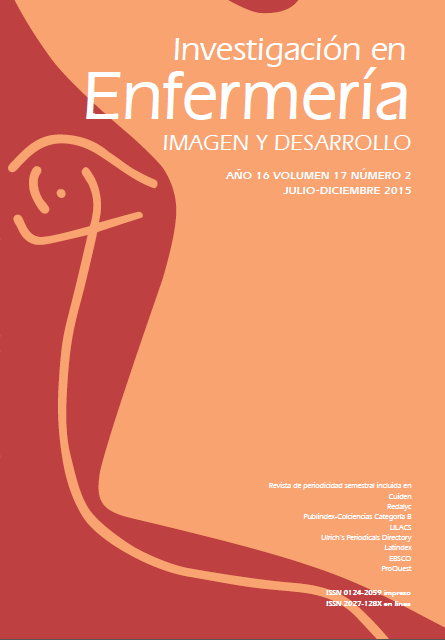Abstract
The number of people living with Diabetes Mellitus (DM) has increased considerably in recent years. The DM for their chronic impacts the physical, psychological, emotional, spiritual and social aspects of the life of the person suffering, implying in turn a number of impacts on social and family interactions generating different meanings for people living with it. Objective: To understand the meanings attributed to a group of disabled adults living with retinopathy and diabetic nephropathy. Methodology: Interpretative qualitative approach with biographical narrative approach favoring life stories. Participants: 10 people selected by purposive sampling. Information gathered through in-depth interviews; the method of content analysis was used. Results: The meanings realized three broad categories: (a) The experiences of dependency; (b) the capacity, that works both as to achieve something, and live the kind of life they consider important and valuable, and (c) the reciprocal relationships, established with their environment, which emerges care experience as a close and direct relationship between two or more people, deeply emotional, pragmatic and practical that affects both the person receiving care and those who provide it. Conclusions: The experience of disability is unique to each individual, taking a meaning according to personal characteristics, age, type of disease, how to interact with the environment and the interactions that take place in this process.
The journal Investigación en Enfermería: Imagen y Desarrollo is registered under a Creative Commons Attribution 4.0 International Public License. Thus, this work may be reproduced, distributed, and publicly shared in digital format, as long as the names of the authors and Pontificia Universidad Javeriana are acknowledged. Others are allowed to quote, adapt, transform, auto-archive, republish, and create based on this material, for any purpose (even commercial ones), provided the authorship is duly acknowledged, a link to the original work is provided, and it is specified if changes have been made. Pontificia Universidad Javeriana does not hold the rights of published works and the authors are solely responsible for the contents of their works; they keep the moral, intellectual, privacy, and publicity rights.
Approving the intervention of the work (review, copy-editing, translation, layout) and the following outreach, are granted through an use license and not through an assignment of rights. This means the journal and Pontificia Universidad Javeriana cannot be held responsible for any ethical malpractice by the authors. As a consequence of the protection granted by the use license, the journal is not required to publish recantations or modify information already published, unless the errata stems from the editorial management process. Publishing contents in this journal does not generate royalties for contributors.


